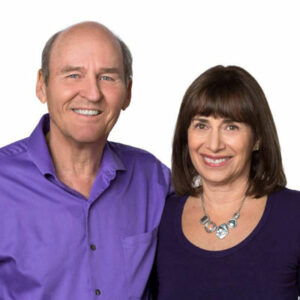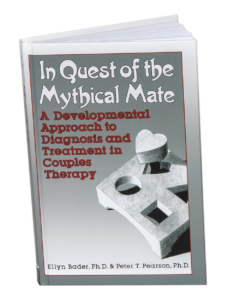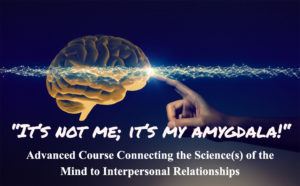Podcast: Play in new window | Download (Duration: 54:40 — 37.5MB)
Subscribe: Apple Podcasts | Spotify | Amazon Music
Learn more about your relationships no matter what, but if you happen to be a therapist, dig into learning more about couples in therapy.
Every couple has its ups and downs, but it's easy to think that your relationship is uniquely challenging. Experts in couples therapy and a couple themselves, Ellyn Bader and Peter Pearson join co-host Sue Marriott to discuss what most people get wrong about working with couples, and how to help get it right. Together, they'll dive into the dos and don'ts of couples therapy, from the perspective of the therapist and the patient.
Who are Ellyn Bader and Peter Pearson?
Dr. Ellyn Bader is considered by many to be the preeminent expert in couples therapy training. Together with her husband, Dr. Peter Pearson, they created the Developmental Model of Couples Therapy, and literally wrote the book on marital therapy.
Peter Pearson, Ph.D., and his wife, Dr. Ellyn Bader, founded The Couples Institute in 1984. Both have now helped literally thousands of couples in their work.
Pete and Ellyn have been featured in over 50 radio and television programs including The Today Show, Good Morning America, and CBS Early Morning News. They have appeared on NPR and been quoted in publications including The New York Times, Oprah Magazine, Business Insider, Redbook, and Cosmopolitan.
Their popular book, Tell Me No Lies, and In Quest of a Mythical Mate has been of critical help to many couples.
What's the point of couples therapy?
The Holy Grail of couples work is really just trying to help couples differentiate together, instead of just individuating on their own. What do we mean by that? Put simply, tensions and difference doesn't have to be scary and separate, but can instead be exciting.
Most fights are, at their core, power struggles. It's often framed as “I want you to change to accommodate me” and vice versa. To grow and change, they need to shift their focus away from winners and losers, but instead towards the WE. The key to couples getting there, is helping each person really own their own stuff. Importantly, can we take responsibility without shame for our own role in each conflict.
What generates change in relationships?
There are three things that really get couples to change their behavior
- Desperation or crisis – whether it's a medical emergency or a natural disaster, having an external purpose or focus can generate really quick and in depth communication
- Negotiation – often the most common thing we try and do as couples, “I'll change X if you change Y” is often the shortest lived and also hardest to make stick
- Inspiration – is there something compelling enough or exciting enough about the future to inspire a change
What role do therapist play?
There's no substitute for having years of experience as a couples therapist. Specifically, if you're looking for a new couples therapist, make sure to interview them and really find a place and a person that will be right for you.
It's also important to remember that the therapist isn't there to take anyone's side. Again, couples therapy is about finding and holding your own accountability. You need to be prepared to do the work on your own side to make your relationship grown and expand.
You might also enjoy:
TU121: Redefining the Purpose of Relationships During Quarantine with Stan Tatkin
RESOURCES:
Ellyn and Peter's website contains all kinds of interactive materials and blogs. A must see!




 GET 10% off this signature course by using code OURCLAN! –
GET 10% off this signature course by using code OURCLAN! –













